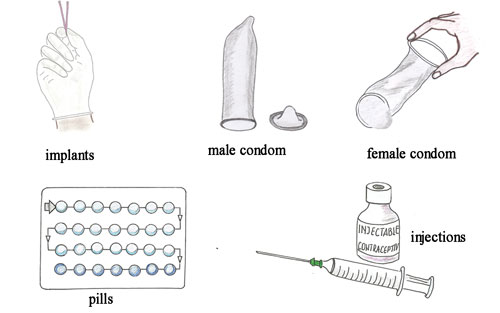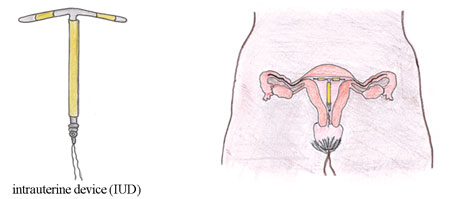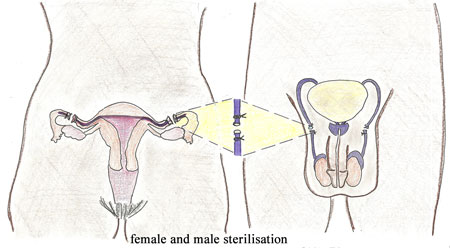20.5 Post-abortion family planning
In the final section of this study session, we turn to the need for post-abortion family planning. In many instances, provision of emergency post-abortion care may be one of the few occasions that a woman and her partner come into contact with the healthcare system. Therefore, it represents an important opportunity for providing contraceptive information and services.
Post-abortion family planning should include the following components:
- Counselling about contraceptive needs in terms of the client’s reproductive goals
- Information and counselling about all available methods, their characteristics, effectiveness and side-effects (see Figure 20.5)
- Choices among methods (e.g. short- and long-term, hormonal and non-hormonal)
- Assurance of contraceptive resupply, so the woman does not run out of protection:
- Access to follow-up care
- Information about the need for protection against sexually transmitted infections (STIs).



Post-abortion family planning also should be based on an individual assessment of each woman’s situation: her personal characteristics, clinical condition and the service delivery capabilities in the community where she lives. You will learn about all of this in detail in the Module on Family Planning in this curriculum. Many women will receive post-abortion family planning while they are in the higher level health facility, but a few may have left too soon. You will also have to provide them with the continued supply of contraception when they are back in your community. Thus this is one area you have a big role in the provision of care to women who have had an abortion.
20.4.2 Molar pregnancy
